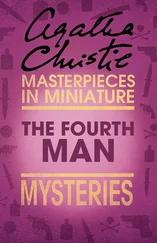Agatha Christie - Hickory Dickory Dock
Здесь есть возможность читать онлайн «Agatha Christie - Hickory Dickory Dock» — ознакомительный отрывок электронной книги совершенно бесплатно, а после прочтения отрывка купить полную версию. В некоторых случаях можно слушать аудио, скачать через торрент в формате fb2 и присутствует краткое содержание. Год выпуска: 2000, ISBN: 2000, Издательство: Berkle, Жанр: Классический детектив, на английском языке. Описание произведения, (предисловие) а так же отзывы посетителей доступны на портале библиотеки ЛибКат.
- Название:Hickory Dickory Dock
- Автор:
- Издательство:Berkle
- Жанр:
- Год:2000
- ISBN:ISBN-13: 978-0425175460
- Рейтинг книги:3 / 5. Голосов: 1
-
Избранное:Добавить в избранное
- Отзывы:
-
Ваша оценка:
- 60
- 1
- 2
- 3
- 4
- 5
Hickory Dickory Dock: краткое содержание, описание и аннотация
Предлагаем к чтению аннотацию, описание, краткое содержание или предисловие (зависит от того, что написал сам автор книги «Hickory Dickory Dock»). Если вы не нашли необходимую информацию о книге — напишите в комментариях, мы постараемся отыскать её.
Hickory Dickory Dock — читать онлайн ознакомительный отрывок
Ниже представлен текст книги, разбитый по страницам. Система сохранения места последней прочитанной страницы, позволяет с удобством читать онлайн бесплатно книгу «Hickory Dickory Dock», без необходимости каждый раз заново искать на чём Вы остановились. Поставьте закладку, и сможете в любой момент перейти на страницу, на которой закончили чтение.
Интервал:
Закладка:
Leaning back in his chair, quiet and alert, was Inspector Sharpe. The fourth man was Hercule Poirot. On the table was a rucksack.
Superintendent Wilding stroked his chin thoughtfully.
"It's an interesting idea, Mr. Poirot," he said cautiously. "Yes, it's an interesting idea."
"It is, as I say, simply an idea," said Poirot.
Wilding nodded.
"We've outlined the general position," he said. "Smuggling goes on all the time, of course, in one form or another. We clear up one lot of operators and after a due interval things start again somewhere else. Speaking for my own branch, there's been a good lot of the stuff coming into this country in the last year and a half. Heroin mostly-a fair amount of coke. There are various depots dotted here and there on the continent. The French police have got a lead or two as to how it comes into France-they're less certain how it goes out again."
"Would I be right in saying," Poirot asked, "that your problem could be divided roughly under three heads.
There is the problem of distribution, there is the problem of how the consignments enter the country, and there is the problem of who really runs the business and takes the main profits?"
"Roughly I'd say that's quite right. We know a fair amount about the small distributors and how the stuff is distributed. Some of the distributors we pull in, some we leave alone hoping that they may lead us to the big fish. It's distributed in a lot of different ways, night clubs, pubs, drugstores, an odd doctor or so, fashionable women's dressmakers and hairdressers. It's handed over on race courses, and in antique dealers, sometimes in a crowded multiple store.
But I needn't tell you all this. It's not that side of it that's important. We can keep pace with all that fairly well. And we've got certain very shrewd suspicions as to what I've called the big fish.
One or two very respectable wealthy gentlemen against whom there's never a breath of suspicion. Very careful they are; they never handle the stuff themselves, and the little fry don't even know who they are. But every now and again, one of them makes a slip-and then-we get him."
"That is all very much as I supposed. The line in which I am interested is the second line-how do the consignments come into the country?"
"Ah. We're an island. The most usual way is the good old fashioned way of the sea. Running a cargo. Quiet landing somewhere on the East coast, or a little cove down South, by a motor boat that's slipped quietly across the Channel. That succeeds for a bit but sooner or later we get a line on the particular fellow who owns the boat and once he's under suspicion his opportunity's gone. Once or twice lately the stuff's come in on one of the air liners. There's big money offered, and occasionally one of the stewards or one of the crew proves to be only too human. And then there are the commercial importers. Respectable firms that import grand pianos or what have you!
They have quite a good run for a bit, but we usually get wise to them in the end."
"You would agree that it is one of the chief difficulties when you are running an illicit trade-the entry from abroad into this country?"
"Decidedly. And I'll say more. For some time now, we've been worried. More stuff is coming in than we can keep pace with."
"And what about other things, such as gems?" Sergeant Bell spoke.
"There's a good deal of it going on, sir.
Illicit diamonds and other stones are coming out of South Africa and Australia, some from the Far East.
They're coming into this country in a steady stream, and we don't know how. The other day a young woman, an ordinary tourist, in France, was asked by a casual acquaintance If she'd take a pair of shoes across the Channel. Not new ones, nothing dutiable, just some shoes someone had left behind. She agreed quite unsuspiciously. We happened to be on to that. The heels of the shoes turned out to be hollow and packed with uncut diamonds." Superintendant Wilding said, "But look here, Mr. Poirot, what is it you're on the track of, dope or smuggled gems?"
"Either. Anything, in fact, of high value and small bulk. There is an opening, it seems to me, for what you might call a freight service, conveying goods such as I have described to and from across the Channel. Stolen jewelry, the stones removed from their settings, could be taken out of England, illicit stones and drugs brought in. It could be a small independent agency, unconnected with distribution, that carried stuff on a commission basis. And the profits might be high."
"I'll say you're right there! You can pack ten or twenty thousand pounds' worth of heroin in a very small space and the same goes for uncut stones of high quality."
"You see," said Poirot, "the weakness of the smuggler is always the human element. Sooner or later you suspect a person, an air liner steward, a yachting enthusiast with a small cabin cruiser, the woman who travels to and fro to France too often, the importer who seems to be making more money than is reasonable, the man who lives well without visible means of support. But if the stuff is brought into this country by an innocent person, and what is more, by a different person each time, then the difficulties of spotting the cargoes are enormously increased." Wilding pushed a finger towards the rucksack.
"And that's your suggestion?"
"Yes. Who is the person who is least vulnerable to suspicion these days? The student. The earnest, hardworking student. Badly off, travelling about with no more luggage than he can carry on his back. Hitchhiking his way across Europe. If one particular student were to bring the stuff in all the time, no doubt you'd get wise to him or her, but the whole essence of the arrangement is that the carriers are innocent and that there are a lot of them." Wilding rubbed his jaw.
"Just how exactly do you think it's managed, M. Poirot?" he asked.
Hercule Poirot shrugged his shoulders.
"As to that it is my guess only. No doubt I am wrong in many details, but I should say that it worked roughly like this: First, a line of rucksacks are placed on the market. They are of the ordinary, conventional type, just like any other rucksack, well and strongly made and suitable for their purpose. When I say "just like any other rucksack" that is not so. The lining at the base is slightly different.
As you see, it is quite easily removable and is of a thickness and composition to allow of rouleaux of gems or powder concealed in the corrugations. You would never suspect it unless you were looking for it. Pure heroin or pure cocaine would take up very little room."
"Too true," said Wilding. "Why," he measured with rapid fingers, "you could bring in stuff worth five or six thousand pounds each time without anyone being the wiser."
"Exactly," said Hercule Poirot. "Alors! The rucksacks are made, put on the market, are on saleprobably in more comthan one shop. The proprietor of the shop may be in the racket or he may not. It may be that he has just been sold a cheap line which he finds profitable, since his prices will compare favourably with those charged by other camping-outfit sellers. There is, of course, a definite organisation in the background; a carefully kept list of students at the medical schools, at London University and at other places. Someone who is himself a student, or posing as a student is probably at the head of the racket. Students go abroad. At some point in the return journey a duplicate rucksack is exchanged. The student returns to England; customs investigations will be perfunctory. The student arrives back at his or her hostel, unpacks, and the empty rucksack is tossed into a cupboard or into a corner of the room. At this point there will be again an exchange of rucksacks or possibly the false bottom will be neatly extracted and an innocent one replace it."
Читать дальшеИнтервал:
Закладка:
Похожие книги на «Hickory Dickory Dock»
Представляем Вашему вниманию похожие книги на «Hickory Dickory Dock» списком для выбора. Мы отобрали схожую по названию и смыслу литературу в надежде предоставить читателям больше вариантов отыскать новые, интересные, ещё непрочитанные произведения.
Обсуждение, отзывы о книге «Hickory Dickory Dock» и просто собственные мнения читателей. Оставьте ваши комментарии, напишите, что Вы думаете о произведении, его смысле или главных героях. Укажите что конкретно понравилось, а что нет, и почему Вы так считаете.












